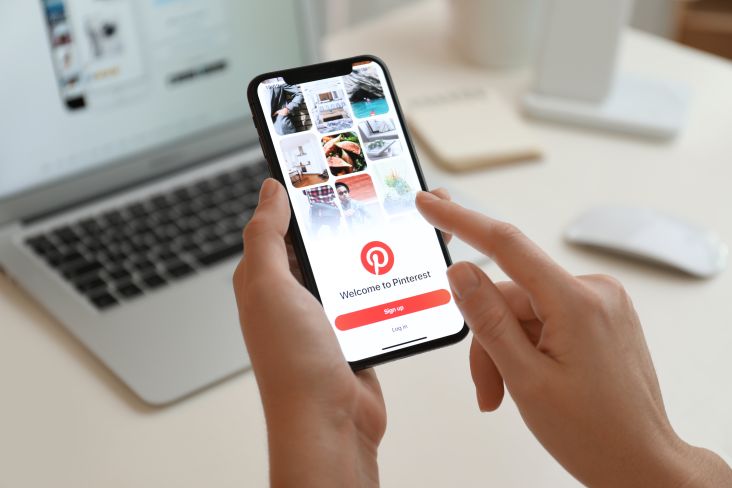How to get the most out of freelancers when you run a small agency
When you run an agency, you'll sometimes need to hire outside support to service your clients. You might need anything from photography and web design to copywriting, graphic design and digital marketing.

Image licensed via Adobe Stock
Whatever you outsource, how do you ensure you get the most out of these external suppliers? How do you know that you're getting your money's worth? And more importantly, that you're getting great value, excellent service and the very best creative input that's out there?
Well, there are lots of mistakes you can make when hiring outside expertise. Errors that can stifle and even alienate those you employ. With this in mind, I've put together the following common mistakes along with some simple solutions to ensure you keep your freelancers and suppliers happy and doing a great job.
Mistake 1. You don't have any of the skills in-house
It's tempting to provide a new service if you spot an opportunity in your local market, but if you or your staff don't have the skills or expertise in-house, it might be best to think again. You would be putting your business at high risk by relying solely on external support that might not stick around or could let you down.
Plus when clients ask difficult questions, and you're not able to answer them – it will only reflect poorly on you. If you want to provide a new service, take on new staff to help grow that side of your business. You can still hire outside help if you need it – it's just always better to have someone who knows what they're doing in your own business.
Mistake 2. You give too much responsibility to freelancers
You can't expect a freelancer to know how to run your business. You have to understand that people should only be hired to provide their skills and expertise. It means if you've appointed a photographer – you should let them provide photography.
You shouldn't expect them to do everything else, including the proposal, meetings and phone calls with clients. That is unless you're prepared to pay them for their time. Don't give your suppliers too much responsibility and expect their extra input for free. It's as simple as that.
Mistake 3. You force suppliers to give a fixed price
Be as flexible and as open as possible with your suppliers when pulling together costs for projects. Yes – you'll want to get a good mark-up, but at the same time, you need to keep everyone happy. It's best to create a contingency plan and offer some leeway should any problems arise.
It's also a good idea to manage client expectations and make it clear that extra work will mean spare time and therefore cost more money. Because if you don't respect your suppliers, they'll walk away.
Mistake 4. You treat your freelancers like employees
When working with outside support, remember that you're paying for their time. Time is always money in this game, so don't assume you can abuse that fact. That means phone calls, meetings or the odd bit of advice here and there should be billed and paid for. Yes – some freelancers will throw in the occasional freebie, but you can't assume that they'll do that every time.
Mistake 5. You don't let freelancers showcase their work
Understandably, you'll want to protect your agency's reputation, particularly if you're claiming to offer specific skills in-house. But clients often don't mind a firm or small agency using the odd freelancer. They're more interested in your company doing a good job.
If you really can't allow suppliers to talk about any projects they've been involved in, then why not allow them to display your logo on their portfolios? Surely it's ok to let them add you as a client? But be warned – unless your suppliers have signed something official, nothing is stopping them from shouting about the work they've done.
Mistake 6. You don't pay on time
It shouldn't matter whether a client still hasn't paid for a project beyond the standard 30-day payment terms – you should always pay freelancers on time. It shouldn't matter if your cash flow is looking a little poor, that's not something your freelancers should have to worry about. Get into the habit of having a healthy bank balance at all times, so you can pay people on time and keep them happy.
Mistake 7. You stifle their creativity
The number one complaint of any freelancer is that agencies can sometimes stifle their creativity. They can treat them like factory workers, forcing them to churn out project after project without any creative input and often to impossible deadlines. It leaves them feeling unloved, unappreciated and unenthusiastic about any work that's thrown their way.
Respect your freelancers and allow them some breathing space to come up with creative ideas and thoughts. Let them enjoy being part of the project and give them some flexibility to add their stamp. Don't just use them like a robot. Make sure you utilise their skills and expertise. If you don't, you'll only end up with half-hearted work and suppliers who have no interest in you or your clients.
Mistake 8. You micro-manage and make work impossible
Some businesses can make the mistake of breathing down the neck of all of their suppliers. They can become the thorn in people's side by continually calling or emailing their freelancers, checking up on everything they are doing at every hour of the day. It only leads to resentment and makes people hate working for them.
Avoid micro-managing freelancers on any project. Give them a chance to get the job done in their own time and trust that they won't let you down. If they do, you can cross that bridge when you come to it. In the meantime, relax and allow suppliers to do an excellent job without stifling them. Yes – you have to manage them to a certain degree, but if you trust them, they will respect and trust you. It's all part of building a happy agency/freelancer relationship.




 by Tüpokompanii](https://www.creativeboom.com/upload/articles/58/58684538770fb5b428dc1882f7a732f153500153_732.jpg)


 using <a href="https://www.ohnotype.co/fonts/obviously" target="_blank">Obviously</a> by Oh No Type Co., Art Director, Brand & Creative—Spotify](https://www.creativeboom.com/upload/articles/6e/6ed31eddc26fa563f213fc76d6993dab9231ffe4_732.jpg)
















